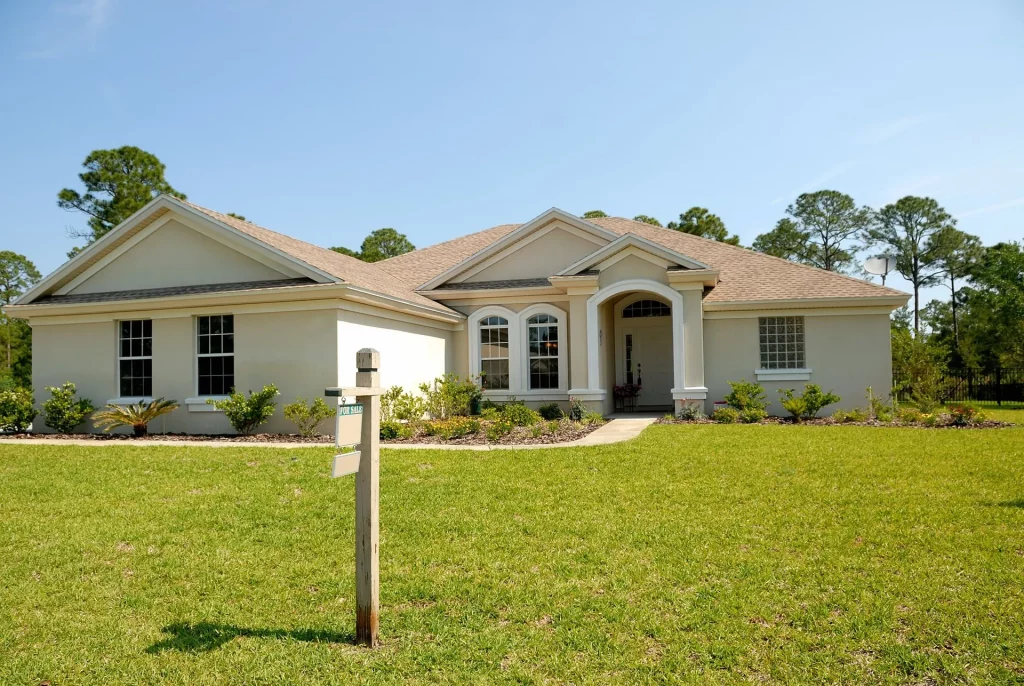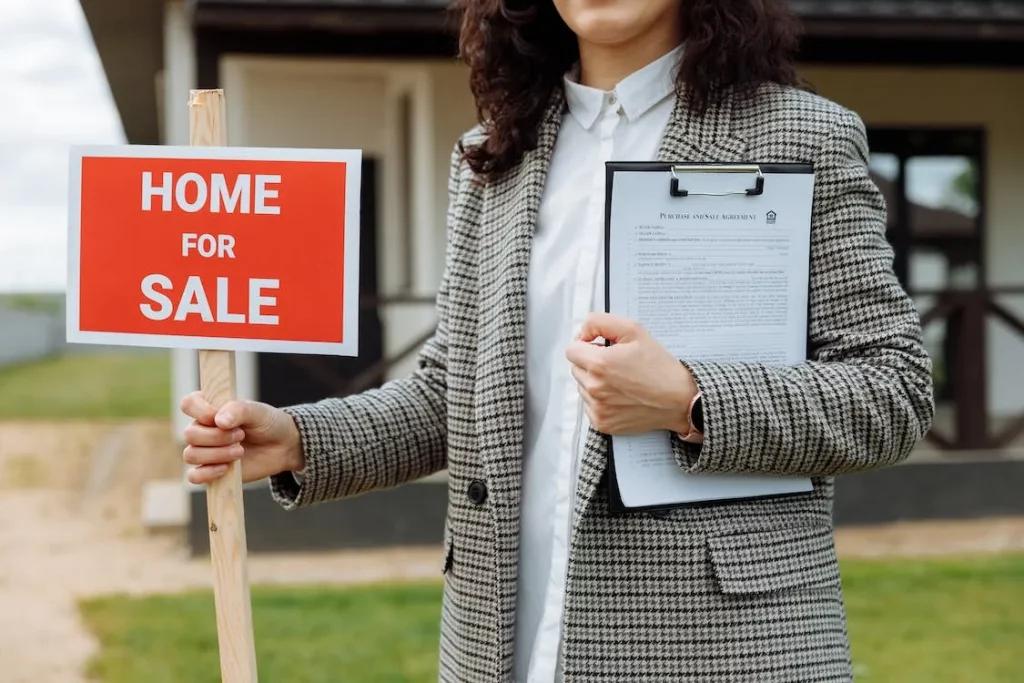Seller closing fees are often neglected when calculating the revenue a property seller would acquire from a transaction. It could be challenging to wrap your head around exactly what you’re receiving for your money when such costs are suddenly added on at the end of a transaction.
In this article, we will answer the question of how much are closing costs for the house seller and what costs are involved in the closing of a house sale.
alt: in a home transaction sellers pay closing costs for the most part
Table of Contents
ToggleWhat Does it Mean to Close on a House?
The house-selling process known as closing refers to the stage when funds and documents are exchanged to confer the buyer with possession of the house. Both the seller and the buyer fulfill their obligations under the contract in a profitable closure.
The buyer and the lender wire funds to settle the remaining sum due on the acquisition, and the seller clears off all loans secured by the asset to clear the title. A third party known as an escrow firm facilitates closing by making sure that all budgets, documents, and other objects are legally exchanged.
What are the Closing Costs?
Separate from agent commissions, closing costs are a variety of fees that are paid by both sellers and buyers at the conclusion of a property sale process. According to Realtor.com, sellers generally pay somewhere between 1 percent and 3 percent of the selling price for the fees, which vary from around 1 percent to 7 percent overall.
Although purchasers have larger expenses during the closing of a home, the seller sometimes bears the cost of both brokers’ commissions. In case you have little equity, you may be required to bring extra cash to the plate to meet the fees, in which case closing costs for sellers are deducted from the revenue you earn on the asset.
Who Pays the Closing Costs?
Closing expenses are typically covered by both buyers and sellers, with buyers often spending more than sellers. Closing fees for buyers generally account for five to six percent of the transaction price.
Primary Seller Closing Costs
According to ClosingCorp, the typical closing expenses for a single-family house in the first half of 2021 were $6,837. These included a title policy for both the lender and the owner, an appraisal, registration and settlement costs, a cost for the survey, and transfer tax.
Realtor commissions, which also get paid by the seller during the closing, aren’t the same as closing costs. Historically, they have cost around 6% of the home’s selling price. Commissions, though, have been declining recently. Currently, they usually represent 4.9 to 4.94 % of the home’s sale price. A 4.9 percent fee for a $400,000 listing would be $19,600. This commission is normally paid equally between the buyer’s and seller’s agents.
Here are some of the typical closing costs for sellers:
- Title insurance policy fees for the buyer.
- Payoff of the mortgage and prepayment penalties (if applicable).
- Money owing on the property that is yet unpaid.
- Lawyer fees for the seller (if applicable).
- Recording and transfer taxes.
If you want to sell your house fast, My Tennessee Home Solution can help! Our friendly team of local veterans purchase properties regardless of their state, guarantee a hassle-free close, and pay you upfront in cash with no fees or commissions involved. Schedule a call with us today to learn how we can help you.

Buyer’s Closing Costs
Although closing expenses are covered by both homebuyers and house sellers, a buyer often bears the majority of the cost in a real estate transaction. However, the precise sum that each party must pay is often a subject of discussion, and it is typical for the seller to provide a credit for all or a portion of the buyer’s closing expenses.
The average closing costs for purchasers are broken down below.
- Finance charges.
- Cost of credit reports.
- Title search fees.
- Insuring the title of lenders (generally needed for a mortgage).
- Fee for the home inspection.
- Fee for appraisal.
- Survey cost (if applicable).
- Fee for settlement (if applicable).
- Buyer’s legal costs (if applicable).
What is Covered by Closing Costs?
When the transaction is finalized, you can normally expect the following expenses:
The various charge categories are outlined below.

Title Insurance
For added protection in case a title issue surfaces after closing, the buyer and the lender typically have their separate title insurance policies. The average price is around $1,000.
Title Search
This confirms that you are the property’s legitimate owner and that no unresolved claims or judgments exist against the property. It usually hits between $300 and $600 on average.
Home Examination
If you choose to have one, home examinations guarantee that the home’s systems and structure are free from serious flaws. The price range for an examination is between $300 to $500.
Appraisal
The value of the property in relation to the amount the seller is receiving from the lender is confirmed by an appraisal. The costs range from $450 to $650.
Survey
Many states demand a survey, which outlines the property’s legal limits, in order to approve loans. It usually costs between $350 and $500.
Prepayment Penalty and Mortgage Payback
You would pay this sum at closing if you have any outstanding debt on the mortgage on the property. According to Marketwatch, certain lenders impose fees if you pay off your loan before the mortgage term is up. These fines might range from a percent of the outstanding debt to a sliding scale cost depending on the loan’s age.
You can speak with your lender to find out if there is a prepayment penalty and the amount it can cost you.

Amounts Still Owing on the Property
This includes mortgage payments, home insurance, utility expenses, and HOA fees (if applicable). These sums will be divided according to the closing. The costs involved vary depending on the case.
Credit History
One or more of the three main credit reporting agencies will be contacted by the lender to conduct a credit history on the buyer. Each report costs between $20 and $50.
Payoff Fees for Loans
These fees consist of prepaid interest, application and assumptions fees, and loan origination fees. 0.5 to 1.5 percent of the selling price.
Tax Transfers
You may be required to pay taxes on the selling transaction, depending on local and state regulations. These are determined depending on the value of the property and regional regulations. Your regional tax rates may be found on the websites of your county and state taxation authorities. Your real estate broker is another option to get this information from.
Cost of Recording
The title transferring the property’s ownership to the buyer will be filed with the relevant county office by your escrow agency, title agent, or attorney. Each county determines its own charge for recording.
Settlement or Legal Costs
A settlement fee is given to the escrow or title agency that finalizes the closing. If you involve an attorney, you’ll usually have to pay their fees as well. Attorney fees range from $150 to $500, with a settlement fee of roughly $2 per $1,000 in sales price.

Any More Conditions Set by the State
For any additional state-specific regulations not covered here, see your agent or attorney. A septic system certification or a flood certification are a few examples of these.
You can be asked by the buyer to cover all or a portion of the closing fees. Your net proceeds will reflect this if you consent to it.
Some real estate agents and brokers charge commissions. If this is the case, it’s typically the seller’s responsibility to cover. They can amount to an additional five to six percent of the transaction price. In the event that you have little equity, you could need to pay some closing costs out of pocket. Otherwise, your closing costs as a seller would be subtracted from the revenues you receive on the property. Your net profits are the sum of money you take home after these expenses.
When are Closing Costs Paid?
Upon closing on the home-buying process, the last step before giving the buyer the keys is when closing costs are paid. You will pay these closing costs when both you and the purchaser visit with the closing agency, title firm and/or lawyer to settle up funds and sign paperwork to complete the transaction.
Usually “due when you close” can be interpreted literally, so make sure to prepare your cheques or money orders ahead of time and present them in person to the closing. You will hand them up right away, not later. If you’re unsure, you can always check with the professionals assisting you through the process.
According to the legislation, closing papers including the specifics of the transaction must be delivered to the seller and the buyer at least three working days before closing. A detailed breakdown of closing costs will be included in these documents.

How to Lower Closing Costs
The good thing for sellers would be that closing costs are often deducted from the sale’s revenues. So if you’re on the listing aspect of things, you generally won’t need to come up with more money out of your own pocket. However, there are several approaches you may take to reduce closing costs. You could negotiate a reduced commission with your agent, or simply work with off-market buyers, like My Tennessee Home Solution, who charge zero fees or commissions.
Additionally, think about selling your own house. Being your own agent, sometimes referred to as “listing for sale by owner” or “FSBO,” can help you save on commission costs and keep more of the sale price of your house.
Finally, you can either negotiate a higher purchase price for your property and agree to cover the buyer’s expenses or negotiate with the buyer to cover the closing costs.
How are Closing Expenses Determined?
As we’ve seen, closing expenses rely on a variety of elements, such as the valuation of the property and the laws in your state and city.
Your closing costs will rely on all of the above factors, including your loan payment expenses, title fees, and the commission fees paid to the agents involved. The worth of your property as well as the laws in your state and city should be taken into consideration.
Should You Cover the Closing Fees for the Buyer?
Sometimes a seller will offer to cover all or a portion of the closing costs for a buyer. This is referred to as a seller concession or a deal-sweetening offer. By doing this, you could increase the appeal of your house in a cutthroat market.
Throughout the renegotiation process, a buyer may potentially request a concession. For instance, the buyer can ask for a concession if anything comes up during the house inspection that you are incapable or hesitant to pay for. To ensure that your net revenues from the sale coincide with your objectives, talk with your agent about any potential compromises.

Final Thoughts
When you sell a property, closing costs come in addition to other expenses such as home maintenance, staging fees, and for some, loan repayments. Capital gains tax may also be due on the transaction, which can impact the overall expense of selling.
To save yourself from all of the worries, expensive procedures, and lengthy hassles, the faster and simpler way to sell your home is with My Tennessee Home Solution. We purchase houses regardless of their looks and state, so you can close quickly and smoothly. Call our local team today to learn more.
Get Cash Offer Now!
We want to ensure that you have all the information needed to make the informed decisions when it comes to selling your house fast. When you enter your info below you will get instant access to the Off Market Home Sales Guide.
